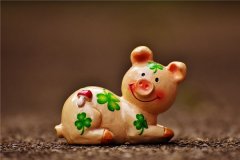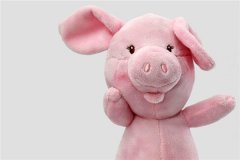
有关新年的英语手抄报素材
描绘了我国人民欢度春节盛大的喜庆情景。爆竹声响是辞旧迎新的标志、喜庆心情的流露。经商人家.放爆竹还有另一番意义:他们在除夕之夜大放炮仗是为了新的一年大发大利。不过,据旧习认为,敬财神要争先,放爆竹要殿后。传说,要想发大财者,炮仗要响到最后才算心诚。
It depicts the people to celebrate the Spring Festival grand festival scene. Fireworks sound is this year marks, festive mood outpourings. Business people. Firecrackers and the other a meaning: they YeDa on New Year's eve is to put the firecracker went off the New Year was wroth gedaliah. But, according to stereotypes that worship to the first, wealth to stay behind and firecrackers. Legend, want a prosperous person, the firecracker went off to ring until finally the numerical XinCheng.
有童谣云:
Have the nursery rhymes cloud:
三星在南,家家拜年;
Samsung paid in south, familie
小辈儿的磕头,老辈儿的给钱。
Small BeiEr of kowtow, old BeiEr give money
要钱没有,扭脸儿就走。
Want money no, twist the handsome and then walk.
踩祟
On their
接神后,将芝麻秸从街门内铺到屋门,人在上面行走,噼叭作声,称为"踩岁",亦叫"踩祟"。由于"碎"与"祟"同音,取新春开始驱除邪祟的意思。
After god, will JieMen straw from within the sesame, who pushes shop to above walk, chip, be quiet, called "trample seems age", also called "trample renowned". Due to "break" and "was" unisonant, take XieSui spring began to dispel the meaning.
祭祖
ancestor-worship
古时,这种礼俗很盛。因各地礼俗的不同,祭祖形式也各异,有的到野外瞻拜祖墓,有的到宗祠拜祖,而大多在家中将祖先牌位依次摆在正厅,陈列供品,然后祭拜者按长幼的顺序上香跪拜。汉人
祭祖,多半做鱼肉碗菜,盛以高碗,颇有钟鸣鼎食之意。
Long ago, the custom very prosperous. Because of the different custom around, the ancestor-worship form vary, some backcountry zhanquan, some to worship the progenitor tomb ancestral worship fathers, and most at home will be placed in the stall ancestral memorial tablet in turn, display offerings, then according to the order of the worship his bow shakily. Han worshipping, mostly do fish bowl dish, filled with high bowl, quite a ZhongMingDingShi meaning.
开门炮仗
Open the door the firecracker went off
春节早晨,开门大吉,先放爆竹,叫做"开门炮仗"。爆竹声后,碎红满地,灿若云锦,称为"满堂红"。这时满街瑞气,喜气洋洋。
The Spring Festival in the morning, open the door plug and firecrackers, called the "first opened the firecracker went off." The firecracker, red, can break ground if brocade, called "ManTangGong". Then RuiQi streets, jubilant.
拜年
Happy New Year
春节里的一项重要活动,是到新朋好友家和邻那里祝贺新春,旧称拜年。汉族拜年之风,汉代已有。唐宋之后十分盛行,有些不必亲身前往的,可用名帖投贺。东汉时称为"刺",故名片又称"名刺"。明代之后,许多人家在门口贴一个红纸袋,专收名帖,叫"门簿"。
The Spring Festival is an important activity, is to establish new contacts friends home and adjacent there, old say congratulations Spring Festival happy New Year. Han Chinese New Year wind, han dynasty existing. Tang is a very popular, some don't after personally to greet MingTie shots, usable. Han dynasty, so called "stab" card, say again "MingCi". After the Ming dynasty, many people in the doorway stick a red paper bags, only collect MingTie, called "door book".
烧门神纸
Burn keeper paper
旧时初三日夜把年节时的松柏枝及节期所挂门神门笺等一并焚化,以示年已过完,又要开始营生。俗谚有"烧了门神纸,个人寻生理"。
The festival night when old grade of 1605 and the appointed feasts hang keeper door depicting etc, in order to show years already together incineration finish, should begin again racket. Out.this common saying "burned keeper paper, personal search physiological".
谷子生日
Millet birthday
民间以为正月初三位谷子生日,这一天祝祭祈年,且禁食米饭。
Folk thought the grade a birthday, the day the millet wishing offering unlikelihood years, and fasted rice.
小年朝
Off-year toward
即天庆节。宋代宫廷节日,宋真宗大中祥符元年,因传有天书下降人间,真宗下诏书,定正月初三日为天庆节,官员等休假五日。后来称小年朝,不扫地、不乞火,不汲水,与岁朝相同。
The sky kei section. The song dynasty court festivities, emperor song zhenzong medium-sized temple-xiang first because linked with a drop too mystierious and earth, authentic, decide the next letters for days beginning 3 kei festival, officials vacation 5. Later said off-year dynasty, not sweeping, don't ever fire, not with the same age, toward the courtyards.
春节,是农历正月初一,又叫阴历年,俗称"过年"。这是我国民间最隆重、最热闹的一个传统节日。春节的历史很悠久,它起源于殷商时期年头岁尾的祭神祭祖活动。按照我国农历,正月初一古称元日、元辰、元正、元朔、元旦等,俗称年初一,而之前则是年三十了。呵呵,大抵与平安夜是一个级别。
The Spring Festival, is the first day of the lunar year, also called celebrated on the fifteenth day, commonly known as the "Chinese New Year". This is our country folk ceremonious and noisiest a traditional festival. Spring Festival's history is long, which originates from the sacrifices of SuiWei shells period years worshipping god activities. According to China's lunar calendar, the day of the first month YuanRi, yuan Calvin, anyang positive and yuan RMB shomer, New Year's day, commonly known as on New Year's day, whereas previously is thirty. Ha ha, generally with Christmas Eve is a level.
传统的春节应该怎样过?
How should the traditional lunar New Year?
腊月25:接玉皇赶乱岁照田蚕
December 25: connect the jade emperor cast disorderly years as tian silkworm
赶乱岁
Cast disorderly years old
送灶神上天后至除夕才迎回,其间人间无神管辖,百无禁忌,民间多嫁娶,被称为"赶乱岁"。乱岁是民众为自己设计的调节社会生活的特定时段。岁末年终,人们有了闲暇与积蓄,对于平时难得有精今日焦点:
Send kitchen after New Year's eve to heaven to welcome back, meantime earth is no god, the folk jurisdiction, baiwujinji marry, known as "catch disorderly years old." Disorderly years is the design of your own people for regulating social life of the specific period. The year comes to an end, people have leisure and savings, for at ordinary times seldom has fine today, the focus of:
力操办大事的人来说,这是一个好时机。因此,人们根据现实生活需要,发明了这一特殊的时间民俗。可见,在传统社会里,民众生活秩序是依赖着民俗进行调节的。
Force 670,000 event people, this is a good time. Therefore, people based on real life needs, invented this special time folk. Visible, in traditional society, people life order is dependent on folk adjusted.
照田蚕
As tian silkworm
也叫"烧田蚕"、"照田蚕"、"烧田财",是流行于江南一带的民间祈年习俗。腊月二十五这一天将绑缚火炬的长竿立在田野中,用火焰来占卜新年,火焰旺则预兆来年丰收。有些地方在年三十举行这一活动。
Also called "burned tian silkworm," "as tian silkworm," "burn TianCai", is popular the area south of the Yangtze river in folk custom qi. December 25 this day will the long rod therein torch covenant in field and by flame divination, flame is flourishing New Year harvest omen. Some places are being held this activity. Thirty
千灯节
Thousands of Lantern Festival
是蒙古族、达斡尔族的宗教性节日。蒙语称"明干卓拉",意即千盏灯节。腊月二十五这一天,做"明干卓拉"去庙里点燃,认为点得越多越吉利。这一节日习俗,在新疆维拉特蒙古族中最为盛行。当地群众在这天吃烤牛羊肉,举行传统的体育游艺活动。
Is the Mongolian, daur religious holiday. Mongolian says "Ming dry zhuo pull", meaning thousand lamp that Lantern Festival. December 25 this day, to do "Ming dry zhuo pull" go to temple lit, think some morer more auspicious. This festival custom, in xinjiang villa, the most popular Mongolian. Local people eat roast beef and mutton in the day, a traditional sports entertainment activities.
腊月29:小除夕过赶年
December 29: small New Year's eve had cast years
小除夕
Small New Year's eve
除夕前一日,叫"小除夕",家置酒宴,人们往来拜访叫"别岁"。焚香于户外,叫"天香",通常要三天。
The day before Chinese New Year's eve, called "small", the home for New Year's eve, people contacts succeeded to visit call "don't age". Incense in the outdoors, called "the heavens fragrance", usually for three days.
腊月31除夕:贴门神贴春联放爆竹
December 31: stick keeper Spring Festival couplet eve firecrackers
除夕是指每年农历腊月的最后一天的晚上,它与春节(正月初一)首尾相连。"除夕"中的"除"字是"去;易;交替"的意思,除夕的意思是"月穷岁尽",人们都要除旧部新,有旧岁至此而除,来年另换新岁的意思,是农历全年最后的一个晚上。故此期间的活动都围绕着除旧部新,消灾祈福为中心。
New Year's eve refers to the annual lunar month of the last night, and it is the Spring Festival (the first month) end to end. "New Year's eve" in "addition" word is "go; easy; alternately, the meaning of" means "on New Year's eve on poor old do", people have to new, except kibaki old so far and dividing, next year another sexually compromising mean, is the lunar year last night. Therefore during the activities around except kibaki new, disaster praying for the center.
周、秦时期每年将尽的时候,皇宫里要举行"大傩"的仪式,击鼓驱逐疫疠之鬼,称为"逐除",后又称除夕的前一天为小除,即小年夜;除夕为大除,即大年夜。
Weeks, qin period each year, when will be the best palace held "big nuo" ceremony, tambourines expel the demons, epidemic disease hapen called "by addition", also called on the day after the New Year's eve, namely except for small XiaoNianYe; New Year's eve for big except, namely eve.
贴门神
Stickers door god
我国各地过年都有贴门神的风俗。最初的门神是刻桃木为人形,挂在人的旁边,后来是画成门神人像张贴于门。传说中的神荼、郁垒兄弟二人专门管鬼,有他们守住门户,大小恶鬼不敢入门为害。唐代以后,又有画猛将秦琼、尉迟敬德二人像为门神的,还有画关羽、张飞像为门神的。门神像左右户各一张,后代常把一对门神画成一文一武。门神分三类:第一类是"大门门神",多贴在车门或整间大门上,高约四五尺,宽约二三尺。第二类是"街门门神",多贴小街门上,高约二尺,宽约一尺。这两种门神都是一黑脸一白脸两位尊神。白左黑右,白善易,黑狞恶,各手执槊钺。第三类是"屋门门神",较街门门神稍小有限,也是黑白二神,但也有黑白二神是坐像的。屋门最多是贴"麒麟送子"像,两个傅粉涂脂梳太子冠的娃娃,各乘麒麟。这种门神,本应贴在新结婚的屋门上,以取吉利,后来也就作普通街门的新年点缀品了。
Our country New Year has posted shot-stopper customs. Initial keeper is inscribed peachwood for humanoids, hanging in person beside the portrait painted keeper, and later is posted at the door. The legendary tu and yu lei two brothers, have their special pipe devils keep portal, the size of the evil spirit, dare not introductory pestcide. The tang dynasty and painting, after QinQiong, a well-known WeiChiJingDe two portrait painting for shot-stopper, and as guan yu, zhang fei for shot-stopper. Keeper like elihu, each about a couple generations often caricatured as a penny. Sasha shot-stopper Shot-stopper could be divided into three types: the first kind is "gate keeper," post more in the doors or whole room door, about four or five feet high, about thirty feet wide. The second is "JieMen goalkeeper," post more side doors, high about two feet wide and about a foot. These two keeper is a black face a white face two by this. White, black BaiShan left right is easy, black Ning evil, each holding up slimming tomahawk. The third type is ", "JieMen pushes keeper is limited, is a smaller shot-stopper black-and-white 2 god, but also have black and white 2 god is ZuoXiang. Pushes up is a stick "kylin SongZi" like, two FuFen besmear fat comb taizi crown doll, each take kirin. This door, and this should be posted in the new marriage door to take cobolli gigli, also later became common JieMen New Year ornament is tasted.
贴春联
Spring Festival couplet
春联亦名"门对"、"春帖",是对联的一种,因在春节时张贴,故名。春联的一个源头是桃符。最初人们以桃木刻人形挂在门旁以避邪,后来画门神像于桃木上,再简化为在桃木板上题写门神名字。春联的另一来源是春贴。古人在立春日多贴"宜春"二字,后渐发展为春联。春联真正普及始于明代,与朱元璋的提倡有关。据清人陈尚古的《簪云楼杂说》中记载,有一年朱元璋准备过年时,下令每家门上都要贴一幅春联,以示庆贺。原来春联题写在桃木板上,后来改写在纸上。桃木的颜色是红的,红色有吉祥,避邪的意思,因此春联大都用红纸书写。但庙宇用黄纸,守制(服孝未满)用白、绿、黄三色,第一年用白纸,第二年绿纸,第三年黄纸,第四年丧服满才恢复用红纸。因满族尚白,清宫廷春联用白纸,蓝边包于外,红条镶于内。
Spring Festival couplets and the name "who", "spring esther," is a kind of couplet of, because in the Spring Festival when Posting, friend name. Spring is a source TaoFu. Initially, people with peach wooden door to ward off evil spirits humanoid hanging in painting, later on, like in peachwood shot-stopper again simplified as in peachwood board inscribed keeper name. Spring Festival couplets another source is spring posts. The ancients in spring day post more "yichun" 2 words, after increasing development for Spring Festival couplets. The Ming dynasty, the Spring Festival couplets real popularization began with zhu yuanzhang's advocate relevant. According to QingRen ChenShang ancient "ornamental hairpin cloud floor ZaShui recorded by zhu yuanzhang, one year is ready to Chinese, ordered every house will post a picture of a Spring Festival couplets and to show celebration. The original Spring Festival couplets inscribed in peachwood board, then rewrite on paper. Peach wooden color is red, red has the meaning of auspicious, ward off evil spirits, so couplets mostly with red paper writing. But the temple with yellow paper, ShouZhi (under) with served filial piety white, green and yellow color, with white paper, and the second year green paper, the third year, the fourth yellow paper frugal marketings full resumed with red paper. Because of the manchu qing palace is white, white, blue edge with Spring Festival couplets bag on outside, red stripes brigandine within.
贴福字、贴窗花、贴年画、贴挂千
Stick hang "happiness" upside down, stick grilles, posted pictures, stick hang thousand

83年猪女40岁后命运开始好,40岁的猪命最好
4-29
83属猪的人十年大运
4-29
83属猪的一生婚姻外遇
4-29
1947年的猪寿终是哪年
4-29
1959年属猪的是什么命,属猪人运势好不好
4-29
1971年猪十年大运预测
4-29